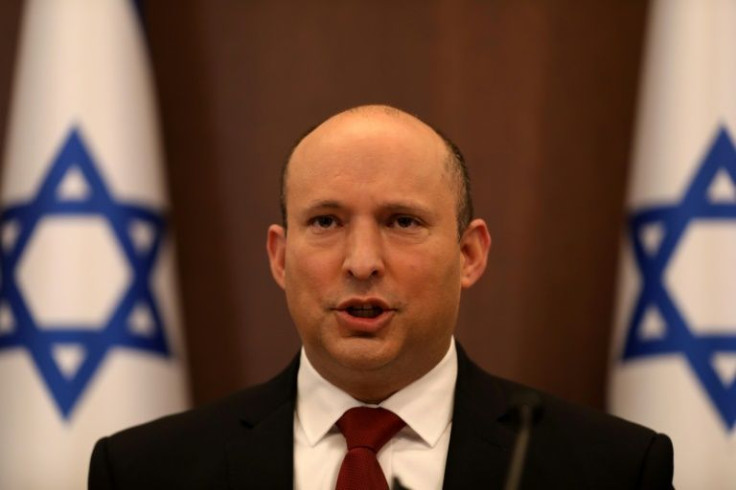Ahead Of Crucial Iran Nuclear Talks, US, Israel Firm Up A Common Strategy

There is no sign that the upcoming Iran nuclear talks in Vienna on Dec. 27 will make a breakthrough despite it being in the interest of all sides.
The EU has long championed the Joint Comprehensive Plan of Action, or JCPOA, Iran's economy is in the doldrums due to stringent sanctions, the U.S. is eager to show it is making every diplomatic effort as the world's only superpower and Israel is not sure of its Arab allies in case of a confrontation.
"Vienna talks to resume on Monday 27 December. The JCPOA Joint Commission will meet to discuss and define the way ahead," EU diplomat Enrique Mora, who is chairing the negotiations, wrote on Twitter.
A nuclear Iran will make stakes high for Israel. So if the upcoming talks on Dec. 27 fail to make progress, the US will chart out a new course of action while keeping in mind Israel and its existential threat in mind.
Israel, which disapproved JCPOA when it started in 2015, has been always skeptical about the outcome of the talks, citing Iran's insistence on laying its hands on nuclear arms. Thus, often Israel's political leaders talk of war with Iran as the solution.
But the during this latest round of talks, Iran put forth sweeping changes and came up with fresh demands which China, Russia, and EU negotiators, who are acting as go-betweens with the US as Washington is not a party to the deal since 2018, considered unrealistic.
Israel has already firmed up its preparations and the country allocated $1.5 billion in November this year to its armed forces for a potential strike against Tehran's nuclear sites when the stalled JCPOA reconvened for a seventh-round of talks in the same month -- the first since hardline cleric Ebrahim Raisi came to the helm of affairs in Iran as its president in August and put fresh demands at the talks in Vienna.
On Dec. 23 ahead of the meeting with Jake Sullivan, Dmocratic President Joe Biden's national security adviser, Israel's foreign minister Yair Lapid insisted the US enter into a strong nuclear deal with Iran to limit its ability to assemble nuclear weapons permanently.
Sullivan, who updated the Israeli delegation on the progress of the Vienna talks, met the Israeli leadership to piece together what he called a "common strategy" with the government of Prime Minister Naftali Bennett.
While in Israel, Sullivan observed that the window for continued diplomacy has been reduced to a matter of "weeks."
"We're not circling a date on the calendar in public," he told reporters.
However, there is a disagreement between US and Israel over the latter's sabotage program, aimed at Iran's nuclear sites.
According to defense experts, the program has proved counterproductive. Each time Iran's nuclear facilities come under Israeli attack, Tehran has got them repaired and operated with renewed vigor, installing newer, more efficient centrifuges that can enrich uranium at a much faster pace.
Lapid, who is scheduled to become prime minister in 2023 as part of a fragile coalition deal, declined to comment on the Israeli sabotage efforts.
"The only thing I can say to you is that Israel has said many times: We have the right to protect ourselves from the biggest existential threats," New York Times quoted him as saying.
Shared fears over Iran have bought together Israel with four Arab countries to normalize diplomatic relations in 2020 which previously shunned Israel due to lack of resolution to the Israeli-Palestinian conflict which revived after the Democratic Biden came to power this year.
Lapid underscored Israel's opposition to current US efforts to reopen a U.S. consulate to the Palestinians in Jerusalem, which the Republican president Trump closed.
Lapid said reopening the consulate would pose a challenge to Israel's sovereignty in Jerusalem.
Affirming the Democrats' two-state solution, Sullivan met with Palestinian President Mahmoud Abbas in Ramallah in West Bank during the trip.
























